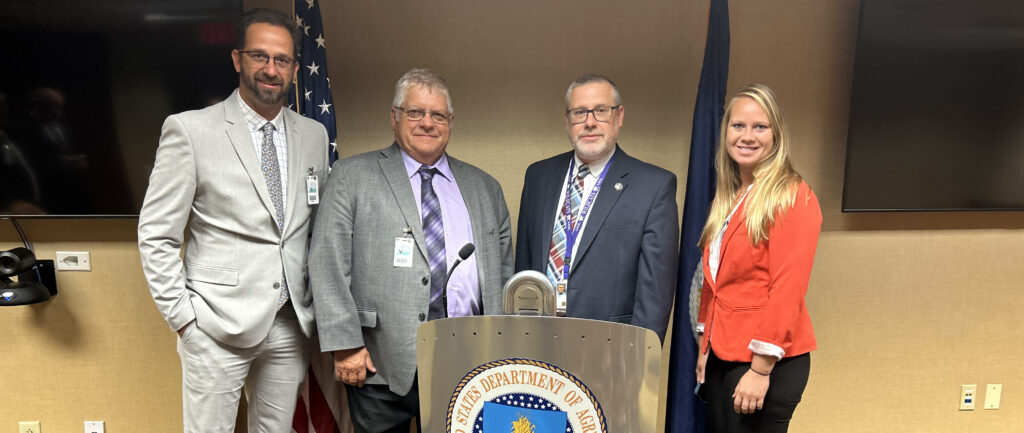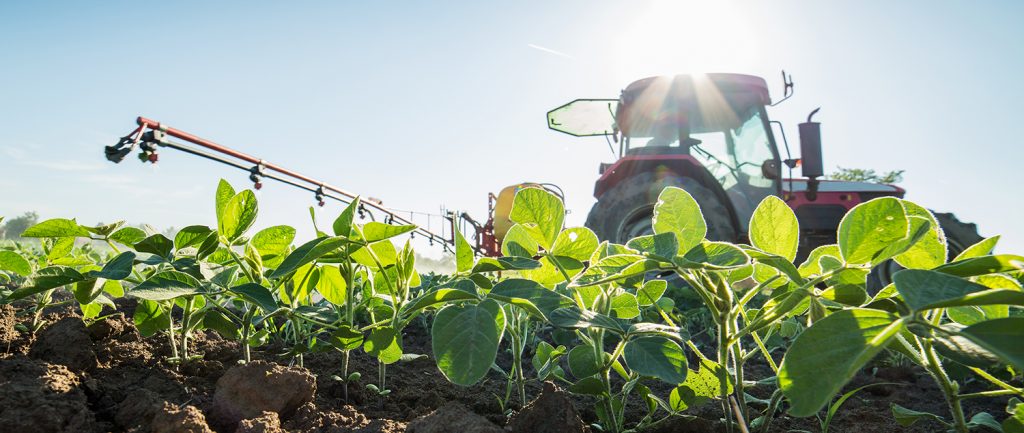This is a sponsored post written by Beck’s Hybrids
Beck’s, the largest family-owned retail seed company in the United States, has been owned and operated by the Beck family since 1937. Since the beginning, we’ve been farmers. And for 82 years we’ve stood beside our customers, embracing the lows as much as the highs. Through it all, we’ve stayed true to our heritage. One built on the hard work, faith and innovation of our family and family of employees.
In recent years, nematodes have become increasingly more problematic for farmers across the Midwest. Damage to crops cannot always be seen as nematodes are microscopic and cause the most damage when feeding on roots, ultimately impacting plant growth. Even if above-ground symptoms do occur, they are usually sporadic and imitate other issues such as drought stress or fertility issues.
Not only has innovation always been at the heart of farming, but it’s been at the heart of our company. Dreaming, inventing, and experimenting with new products, traits, and technologies is what allows farmers to continue improving their operations. Thriving on the pursuit of innovation, Beck’s always looks to provide farmers with the greatest potential from the seed they plant while helping prevent crops from falling victim to yield-robbing pests.
There are many types of nematode species, but when it comes to soybeans specially, Soybean Cyst Nematodes (SCN) are the number one cause of yield loss in the U.S. as infestations can cut yields by almost 30 percent. Not only will SCN cause stunting, yellowing, early death and reduced nodulation, it can also serve as an entry point for other diseases such as the fungus that causes Sudden Death Syndrome (SDS).
“Because SCN is prevalent in a majority of the soybean acres in the U.S., it’s important to take action by not only checking your soils for nematode infestations, but also protecting your seed from the start,” said Jim Schwartz, Beck’s director of PFR and agronomy. “The only way to truly measure SCN pressure in your fields is to test your soils.”
Why is Testing for SCN important?
Genetic resistance is the main tool for managing SCN populations and has been for over 20 years now. While still largely effective, the concern today is the development of resistance or race shift within the SCN population. The predominant genetic resistance is from a single source (PI88788) and is thought to be losing its effectiveness. While resistance has been slow to develop, SCN “creep” may be going unnoticed.
Regular Soil Tests Confirm SCN Levels
Soil testing for SCN can be done throughout the year, but fall is the ideal time following soybean harvest. If you have a lot of acres, it’s best to pull the first soil samples from areas where you’ve seen yellowing, stunting and premature death. Farmers should also look to prioritize fields that have been in a soybean-after-soybean rotation.
SCN Recommended Sampling Procedures
- Take 10 to 20 soil cores, much like nutrient samples, in a zig-zag pattern, with a soil probe 6 to 8 in. deep.
- Mix the samples thoroughly before placing in a bag. NOTE: SCN distribution is often erratic in a field, so take numerous cores and thoroughly mix.
- Reduce mixed samples to approximately 1 qt./10 A.
- Label the outside of sample bags with field and location info.
- Keep samples cool.
- Mail or ship in sturdy container or box.
- Avoid shipping prior to a weekend when samples may sit in transit for an extended period.
While taking soil samples this fall is imperative in the fight against SCN, it’s also important to ensure your looking at adequate seed treatments when making your seed purchase decisions for the 2019 season.
“Since releasing our first exclusive seed coating system in 1996, Beck’s has continued to utilize the best quality ingredients to enhance and protect seed at the highest level,” said Schwartz. “Today, our proprietary seed treatment, Escalate®, provides insect, nematode and disease protection, as well as improve stands and higher yields. By constantly testing new products and ingredients, farmers can feel confident that they’re getting the best possible protection and enhancement for their seed.”
To help reduce losses caused by nematodes, Beck’s introduced Nemasect™ a new ingredient to their Escalate seed treatment that comes standard on all corn and soybean products at no charge.
With multiple modes of action against the most common nematode species, as well as activity on many soil-dwelling insects, Nemasect is a powerful addition to Escalate. What’s more? Nemasect delivers an additional yield protection advantage of 3.5 Bu./A. in soybeans and 12.2 Bu./A. in corn.
If you would like more information on Escalate, powered by Nemasect, click here.
NEED TO SEND SAMPLES FOR TESTING?
Below is a list of SCN testing labs in Minnesota. For a comprehensive list and additional locations beyond what’s listed, click here.
University of Minnesota – Waseca, MN
507-835-3620
www.sroc.cfans.umn.edu/research/plant-pathology/nematode-soil-sampling
Ag Vise – Benson, MN
320-843-4109 | www.agvise.com
MVTL Laboratories, Inc. – New Ulm, MN
507-354-7645 | mnsoil@mvtl.com







